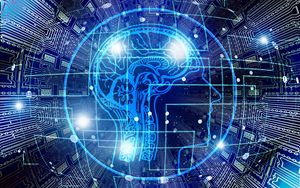(Finance) – The theme ofartificial intelligence remains at the center of attention, both in the scientific community and in the institutional sphere, because it could open borders unknown and carry large advantages and discoveries for society, but also to pose serious risks to humanity. It all depends on how it will be used and on the rules that humanity will give itself. This is essentially the message that the “fathers” of generative AI have launched to the international community, investing i political leaders of an unprecedented responsibility.
Europe is aware of thisas well as other major developed economies, is working on a body of rules which allows the advantages of AI to be exploited without running the risk of it taking over man. A definitive regulation is being drawn up, the Artificial Intelligence Act (AiAct), recently approved by the European Parliament. It’s about the first legislation in the world on artificial intelligence and covers topics such as facial recognition in public places, biometric identification systems and the ban on emotion recognition software.
Very complex regulation it won’t be ready before the end of the yearThen comes the approval process. For this reason, the idea of drafting some provisional rules pertaining to the fundamental values of humanity is gaining ground, in order to keep pace with the tumultuous pace of technological development.
From “temporary” rules involving European states on a voluntary basis, the trade commissioner spoke recently Margrethe Vestagerafter meeting the number one of Google Sundar Pichaiarrived in Brussels for make the commitment to abide by all the rules and fight misinformation. “There’s a shared sense of urgency. To make the most of this technology, stakes are needed”, explained Vice-President Vestager, referring to the negotiations underway at the G7.
The topic of AI and its risks was also at the center of the last G7 summit in Japanwhere the hypothesis of writing down the rules was discussed o technical standards, to be adopted on a voluntary basis, to set temporary stakes to AI and thus make it “reliable”. World leaders, meeting in Hiroshima, agreed that governance has failed to keep pace with the development of technology, but that “artificial intelligence systems must be accurate, reliable, secure and non-discriminatory, regardless of their origin” and above all they are “in line with our shared democratic values”.
Result of the summit in Japan the establishment of a working groupattended by the competent Ministers, to explore the issue of risks associated with generative AI by the end of this year.
If on the one hand Artificial Intelligence can be seen as a source of progress, well-being and work, on the other it poses serious risks for mankind, especially if used to manipulate people. Even the AI experts have warned of the risks inherent in this technology.
Recently, the eclectic Elon Musk raised an alarm on AI, asking for a six month suspension to the development of the most powerful systems. But also Sam AltmanCEO of OpenAI and father of the revolutionary ChatGPT, admitted that, over the next ten years, “AI systems will surpass the level of expertise of experts in most sectors” and that “superintelligence will be more powerful than other technologies that humanity has had to deal with in the past.” But at the same time Altman warns that, he is taking consider leaving Europe if the rules turn out to be too stringent.
